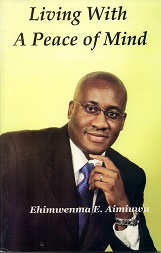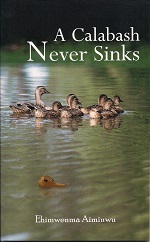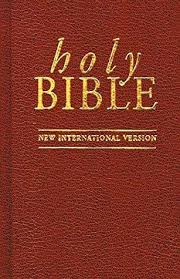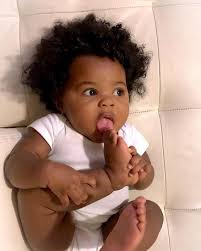
A lot of dust was raised in the press in 2004 over the Oduduwa issue. The controversies on Oduduwa are finally put to rest in this write-up. All students of history must carefully preserve this historical record as a reference point. Oduduwa is Prince Ekaladerhan of Bini and he entered Yoruba life about 900 years ago and that is categorical and final. The Yoruba/Edo collaborative evidence follow. The first most telling revelation about Oduduwa’s ancestry is from Oduduwa himself. He, in his lifetime, reserved a special seat in his Ife palace for his ancestors. The seat remains reserved until this day for the Bini monarch only. No one else, not even the reigning Ooni, or Oronmiyan (Alaafin) in Oyo, or any of the Obalades of Yorubaland can sit on the seat. So, if Bini is not the wellspring of Ife, why is it that no member of the Alaafin, or Ife Ooni dynasties (or siblings), can use the seat?


Besides, the most sacred name for Ife is ‘Uhe’ a (non-Yoruba), deep and strong Bini word, meaning virgin or vagina depending on how it is pronounced, and is interpreted in myth as ‘innocence,’ ‘the birth canal,’ or ‘the source of life.’ Also, no major Ifa ritual or ceremony in Ife even now is considered authentic, blessed by or acceptable to the gods and ancestors, without the presence and involvement of relevant Bini traditional faith custodians. The dress culture of Ife chiefs and priests is from Bini court.
Professor Ade Ajayi’s comment that the Bini are trying to re-write history and that the motivation for this is political is ridiculous to say the least, unless professors are not supposed to have some responsibility for truth and scholarship. Ajayi’s comment influenced less-informed commentators who accused the Oba of Bini of possible political bias at the age of 80, in an interview published in The News of 28 June 2004. The age of the Bini monarch bellies the silly accusation. No Bini historian, including Omo N’oba Erediauwa has said that a rebel king migrated from Benin to father Oduduwa in Ile-Ife. The Yoruba historians peddling this falsehood should take time off to read this specially packaged report on Oduduwa because it puts the Oduduwa controversy to rest once and for all.
Perhaps the most childish comment on the Oduduwa issue so far was the one in an article published in the Sunday Sun of June 27, 2004. The writer is upset over the antics of Bini prostitutes in Italy but ignores the Yoruba credit card schemers, painting the USA and Europe red with their notoriety? He says and I quote: “The Bini position on Oduduwa is motivated by imperial politics, a dose of envy and irrepressible ego. It is part of an agenda to hijack the enviable fame of Yoruba dynasty and superimpose it on the subdued ego of the Bini people who have lost the glory of their once powerful Bini Empire to the greater might of the British colonial masters.”
I was expecting the writer to say ‘Yoruba masters’ instead of ‘British masters’ in his erroneous statement. As far as I know, there is no record of the Yoruba ever once conquering or colonizing even an inch of Biniland. Rather, the Bini colonized, dominated and enslaved large tracks of Yorubaland and people until British colonialism liberated the Yoruba, so who should be envying who? Besides, the Yoruba were colonized along side the Bini and we all gained our ‘flag’ independence from the British on the same day, which was the 1st of October 1960. Black collective plight as the most wretched people in the world has not changed since ‘flag’ independence, so what is there in the Yoruba to make the Bini or anyone jealous? The writer is proud that there are Yoruba enclaves in Brazil and so on. But they got there as slaves and they are still slaves, (second-class citizens), in the Diaspora right now. The Bini were never enslaved, (the Bini kept hordes of Yoruba and other slaves from their conquests and shielded them from the slave trade), so you would not find slave colonies of the native Bini extraction anywhere in the Diaspora. What greater honour could anyone have than that?
No Yoruba commentator or expert so far has provided concrete evidence or credible story on Oduduwa. Some that have attempted to do so, have quoted spurious speculations from racist, paternalistic and condescending British historians like Basil Davidson, because that was what they passed their exams on. Prof. Siyan Oyeweso of the LASU History Department, goes further to swear by some 1950s – 60s researchers, such as Philip Igbafe, R. E. Bradbury, Alan Ryder and G.A. Akinola, who quoted profusely from each other, and largely relied on the ‘white god’ Davidson’s story for authenticity. What right do we have to expect these ‘experts’ to transcend the infantile bias of their day that Oduduwa was God incarnate, who as the Yoruba progenitor, descended with a rope from the sky? Could the historians have said Oduduwa was not God at a time of Yoruba political dominance in the region? Could they have set off on a limb and expect their books to be recommended reading by the West African Examination Council (WAEC)?
The overwhelming counter argument by the Yoruba so far, weighs heavily on why the Bini have only just come out now with their Oduduwa story? It is wrong for anyone to claim that the Edo origin of Oduduwa story is a recent creation. Prof Siyan Oyeweso even tried to put a 1971 date on when Edo people invented the Oduduwa story. He provides no evidence of his assertion other than that we should take his words for it because he is a professor. And if he were allowed to get away with his blatant distortion of history, it would become the history that students pass their exams on. That is how the Davidsons and Bradburys became the authorities on African history.
I have discovered serious laxity on the part of some of our supposed African professors. They accept any rubbish put out by the dishonest, ill-informed Basil Davidsons of the white world as the gospel truth requiring no further investigation. No black intellectual outside Africa today relies on racist whites as sources of knowledge about themselves because such whites lie about the African contributions. They claim that we were nothing until slavery, and that we were worse than wild animals before they intervened in our lives, and that we are still less than animals now.
Racist whites do not want us challenging their lies and upsetting the applecart. But the greatest thing about truth is that until it triumphs, it allows lie no peace. It does not matter when the truth comes out? If a researcher comes out with the true identity of God today (as I have now done in this book), billions of years into the creation story, does that make the truth less true? The world continues to stumble on new ‘truths’ everyday because original researchers did not have the accumulated knowledge and tools now available to modern research work.
Ovbia Oba Edun Agharese Akenzua, in his book: Ekaladerhan, tells us that while the Oba of Benin was visiting Ife on November 11, 1982, the Ooni said in part……”As we have mentioned briefly during our historic visit to your domain not too long ago, we said that we were there to pat you on the back for a job well done. Your present visit we regard as a short homecoming, where you will have an opportunity to commune with those deities you left behind. Now my son and brother, long may you reign.” “The address suggested that the people of Benin, or at least, the Royal Family, owe their origin to Ile-Ife. In the prelude of his response to the Ooni’s welcome address, the Oba of Benin tacitly rebutted the submission.” “The Oba said: If the Ooni of Ife calls the Oba of Benin his son and the Oba of Benin calls the Ooni of Ife his son, they are both right.” “The Oba did not elaborate, but in the womb of that innocuous assertion is the fetus of a story, which had never been told in full. In both Benin and Uhe, the story is told with varying details.”
Six years ago, I sent the Edo story on Oduduwa to Adeniji, the Arts Editor of ThisDay newspaper at the time. I phoned and he said I should send it but he never used the story. I understand that the Daily Independent of Friday May 14, 2004, published a version of the article in my name with my original title. I have not read it but I suspect it is the same article I sent to ThisDay two years earlier that the Daily Independent newspaper published when the controversy was raging. Whatever it is, am I to blame for the story not being used earlier? I don’t own a newspaper or magazine. I can only try and reach out through facilitators, hoping that they and everyone else would be interested in the unraveling of truth.
Edo historians have written volumes on the Oduduwa story. My parents told me the story in my early teens. They too were told the story in their teens as are every Edo child regardless of what they are taught at school for WAEC exams. I wrote about it in the Sunday Guardian and the Post Express some twelve to fifteen years ago. Five years back, I put the story all over the Internet, and a few years earlier I produced a book on Oduduwa in my Obobo book series for children. Four years ago, I did a four-part series on Edo history in my Daily Sun’s weekly column, which was lost on the public until the Oba of Bini’s book reviews woke up our pseudo authorities on Oduduwa. The Yoruba professors who put a workshop together on Oduduwa history at the EKO FM Multi-purpose Hall in Lagos on Thursday October 7, 2004, were not aware that my write-up preceded the Edo monarch’s book reviews, and yet they pretend to be knowledgeable on what is written and when about Oduduwa. So, there is a time, place and opportunity for everything.
Prof Isola Olomola of the OAU’s History Dept. claims that Oduduwa could not have been a Benin man. Olomola would not accept such history anyway and his reason is very simple indeed, Olomola is a professor and a Yoruba. He puts no argument forward to buttress his position; instead, he allows his tribal pride to becloud his better judgment. That is not scholarship but an attempt to write history by ‘ugboju’ or terror tactics. Prof. Siyan Oyeweso beats his chest that Oduduwa is not Ekaladerhan and that Oduduwa dropped from the sky. The works of such professors litter library shelves around our country, distorting our history and keeping us ill informed. To move forward on the Oduduwa issue, Yoruba historians must let go on their two fallacious preoccupations: (a) that Oduduwa dropped from the sky at the beginning of time, and (b) that Oduduwa was the Yoruba progenitor. The Bini do not claim to be the Yoruba progenitors and as Prof. Isola Olomola suggested at the October 7, 2004, workshop on Oduduwa, skeletal remains of a stone-age man has been found at Iwo Eleru, near Isarun in Ondo state, with similar sites also discovered in Ife, Owo, and Asejire. Dating of the sites may need more vigorous investigation and coupled with the facilities of an open mind, we could begin to move forward on the Oduduwa issue. This is what this article on Oduduwa tries to do by asking questions and providing available knowledge in a systematic, comprehensive, and simplified way, to solve the controversy and carry even non-scholars along. My most potent weapon in this regard, is the unraveling of the date of the Oduduwa experience.
When did Oduduwa reign in Ife?
If we can establish the date and time of Oduduwa’s interregnum in Ife, most of the mysteries about who he was would be laid to rest. I have solved the problem of date in this article to finally put the Oduduwa controversy to rest. The Yoruba do not know the time of his reign in Ife beyond the speculation that his name was synonymous with Ifa, and that the Ifa divinity was there from the beginning of time. In other words that Oduduwa is as old as time itself. The idea that he was here at the beginning of time is too vague for serious minded people to consider.
The Universe is some 10 to 20 billion years old and the Earth 4.6 billion years. Humans are the late comers on Earth and have evolved over a period of 13 million years albeit as members of the chimpanzee family. We only started looking as we do now (i.e. Homo sapiens) 50,000 to 100,000 years ago. 15,000 years ago to be specific, the human race was still very primitive. The stirring of civilization started in earnest from Black Egypt less than 10,000 years ago. All races of the world originated from the African (Black), and moved to occupy the rest of the earth from Africa. Even when original African settlers all over the world had begun to change in skin colour due to climatic differences and had forgotten their African origins, new waves of Africans continued to invade their old colonies to assert their authority and teach new knowledge. From the Osirian reign in Egypt in 4100 BCE, Africans began to teach the rest of mankind farming, industrialization, commerce, and how to organize cities and nation states, while the African religion, the Mystery System, (which is the mother of all the religions of the world), began its uninterrupted supremacy until about 2000 years ago.
Africans from Egypt colonized Mesopotamia and Elam in 4000 BCE to teach the rudiments of civilization and introduce African religion (spirituality), which with emphasis on Nimrod, carved from the image of Ausar (Osiris), went through several phases to become Zoroastrianism. The African religion also gave birth to the Islamic religion in Persia, 1000 years before the birth of Muhammad. The Dravidians from Ethiopia took Hinduism to India in 3200 BCE. In 1640 BCE, 70 Hebrews entered Egypt but some 3,154,000 African-Hebrews left Egypt in 1230 BCE, under the leadership of the African prince called Moses. Moses trained in the Mystery System as a prince for 40 years and adapted its laws for his followers. Arabs are a hybrid of Africans and Caucasians. Muhammad was born in 570 CE and he adopted the Babylonian (African) religion that was already 1000 years old from Persia during his time.
The reverse dispassion of blacks from the Nile Valley began seriously as a result of the over population of the Valley, then as a consequence of social upheavals, and finally due to Persian 525 BCE, Greek 332 BCE, and Roman 55 BCE invasions of the black race Egypt. The civilizations that emerged from the Egyptian disturbances in the West African sub-region, not in any special order, where Ghana, Chad, Mali, Benin and Songhai, with some dating back to 1500 BCE, at least.
The Bini so far trace their history to perhaps hundreds or thousands of years before 40 BCE when they where called Idu and to 40 BCE specifically, when the Ogiso dynasty began. Thirty-one Ogisos ruled Idu (called Igodomigodo), between 40 BCE and about 1200 CE. The first Ogiso (king) was called Ogiso Igodo and his capital was at Ugbekun. Ogiso Igodo’s successor, Ogiso Ere, transferred the capital from Ugbekun to Uhudumwunirin. The last of the Ogiso kings was called Owodo. He reigned in the early 11th century CE and had only one child, a son, despite having many wives. That child, Ekaladerhan, is Oduduwa. All Oduduwa’s telltale links with Edo are still there open to investigation. The non-mortal aura of Edo God-son kings since 40 BCE – the sacrosanct first son succeeding father traditional law. Then, around 1200 CE, Ogiso succession became a problem because heir apparent, Ekhaladerha, escaped to Yorubaland. This led to the emergence of Ogieamie chiefdom to sell Edo land at every coronation to Edo Oba elect since 1200 CE. By the above account, Bini historians are saying that Oduduwa’s reign in Ife ended around 1200 CE. Yoruba historians confirm that Oduduwa’s first child and son was Oronmiyan and that Oronmiyan was the first Alaafin of Oyo. Yoruba historians deliberately avoid discussing the date Oronmiyan ascended the Alaafin throne obviously because that would destroy their myth about when Oduduwa intervened in their lives.
The Bini say the Alaafin’s dynasty in Oyo began around 1200 CE. Oronmiyan was in Igodomigodo in 1170 CE, and it was after his sojourn in Igodomigodo that he set up his Oyo dynasty. This date is not difficult for Yoruba historians to verify and if it is true, Oduduwa was alive during his son’s sojourn in Igodomigodo and also when the Oyo dynasty came into being. Therefore, the Ife stool could not have become vacant until about 1200 CE. This is not really debatable because Yoruba historians confirm that 37 Oonis reigned in Ife before Akinmoyero in (1770-1800), and that 13 more have reigned since. This enables us to prove the 1200 CE date mathematically. If from 1800 CE to 2004 CE (i.e. a period of 204 years), produced 13 Oonis on the average, how many Oonis could have reigned from 1200 CE to 1800 CE (i.e. a period of 600 years)? The answer is 38 Oonis.
The Ife history of the Ooni dynasty confirms 38 Oonis, including Akinmoyero (1770 – 1800). Here are their names in the ascending order of the period of their reign: Ogun, Osangangan, Obamakin, Ogbogbodirin, Obalufon, Oronmiyan, Ayetise, Lajamisan, Lajodogun, Lafogido, Odidimode Regbesin, Aworokolokun, Ekun, Ajimuda, Gboo-Nijio, Okinlajosin, Adegbalu, Osinkola, Ogbooru, Giesi, Luwoo (female), Lumobi, Agbedegbede, Ojee-Lokunbirin, Lagunja, Larunka, Ademilu, Omogbogbo, Ajila-Oorun, Adejinle, Olojo, Okiti, Lugbade, Aribiwoso, Osinlade, Adagba, Ojigidiri (Lumbua), Akinmoyero (1770 – 1800), Gbanlare (1800 –1823), Gbegbaaja (1823 –1835), Wunmonije (1835 –1839), Adegunle Abewelo (1839 –1849), Degbinsokun (1849 – 1878), Oranyigba (1878 – 1880), Derin Ologbenla (1880 –1894), Adelekan Olubuse I (1894 –1910), Adekola (1910), Ademiluyi Ajagun (1910 –1930), Adesoji Aderemi (1930 – 1970), and the current Ooni Okunade Sijuwade Olubuse II, whose reign dates from 1980. Obviously, Oronmiyan, the first child and son of Oduduwa, did not inherit his father’s throne, which is the genesis of the quarrel between the true Oduduwa’s heirs and the Ooni’s dynasty.
Oduduwa’s eight children (as claimed by Yoruba historians), are known as the Obalades or crowned chiefs of Yorubaland. The argument is that not all Yoruba Obas have genuine crowns; only the Obalades are the exception and consist of the Alaafin of Oyo, the Oregun of Ile Ila, the Alake of Egbaland, the Owaoboku of Ijeshaland, the Alaketu of Ketu, the Owa of Ilesa and two Obas in the Republic of Benin as follows: the Onipopo of Popo and the Onisabe of Sabe. What this means in effect is that Yoruba civilization did not start in earnest until the reign of Oduduwa and his sons. All leading Yoruba historians agree on this.
In fact, we know that it was from early twelfth century that Ife grew into a large city surrounded by walls, inhabited mostly by farmers and some skilled craftsmen who created great works of arts respected around the world today. The famous Ife bronze, terracotta works, statues in baked clay, some representing the Ooni dressed in full regalia, are among the world’s greatest works of art. Some of the terracotta were so large and complex, it is impossible to bake them today even with modern technology. All these date back to the eleventh century CE.
Because Ogun, the first Ooni after the demise of Oduduwa, was not Oduduwa’s child, he was not considered an Obalade by Yoruba tradition and elite. Ogun was a chief with spiritual responsibilities. He usurped the Ife throne because the true heirs to the throne were busy else where at the time of their father’s death. Ogun out maneuvered the children of Oduduwa over the Ife throne with his superior knowledge of the inner working of the Ooni’s palace, and his spiritual prowess as the head of the Ogun shrine. Oduduwa’s true heirs have been smarting over this ever since.
Chief Obafemi Awolowo, the Premier of the Western Region of Nigeria in the early sixties, strengthened the hands of the Oonis, and facilitated their prominence in Yorubaland by appointing Oba Adesoji Aderemi, the Ooni of Ife at the time, as the first Governor of the now defunct Western Region of Nigeria. Oba Adesoji Aderemi’s ascendance was consolidated with his Chairmanship of the Western Region’s Council of Obas that at the time entrapped the Edo Oba. With such immense political power of his own, and the political influence and authority of Awolowo as the leader of the Yoruba, no one could raise a finger against the supposed illegitimacy of the Ooni’s dynasty in Yorubaland. The Bini, of course, were worst hit as a voiceless minority in Awolowo’s Western Region’s politics of tribal exclusion and domination.
The Oduduwa lineage tried to fight back by identifying with the NPN in opposition to the UPN. Awolowo accentuated the schism by promoting the emergence of Bode Thomas, a young and dynamic lawyer from Oyo. Bode, with Awolowo’s clout, wielded considerable political power in Oyo to the point of being rude to the Alaafin, who was alleged to have put a curse on him. Bode became mad to the chagrin of Awolowo, who promptly banished the Alaafin from his Oyo throne. Just as the Oduduwa’s legitimate heirs and the Yoruba elite generally, have always known and concealed the quarrel over the Ife throne, the Bini have always known their history and borne the pains of not being able to act on it because Chief Awolowo was unassailable and had turned the Ooni dynasty into a colossus to cow all opposition.
Another way of confirming Oduduwa’s 1200 CE demise date in Ife, is to look into the famous account of valour during Oduduwa’s reign when an external invasion by the Igbos from the East took place. The record can easily be traced and Moremi’s courage came to the fore at the time for sacrificing her life for the safety of her people. From 1200 CE to 2004 CE is only 804 years, so the Yoruba should stop deceiving themselves that Oduduwa dropped from the skies at the beginning of time or that Ife is the ‘source’ of the universe. Ife is ‘Uhe,’ meaning Oduduwa’s re-birth, or successful re-location from Bini land of his ancestors.
Where did Oduduwa come from in Yoruba myth?
The Yoruba story about Oduduwa is extremely thin on substance. What we have is wrapped largely in myths, parables, and folktales. In fact, the most generous way to describe the story is that the Yoruba do not know anything about their highly revered progenitor. Oduduwa himself left a tell tale evidence of his ancestry in his lifetime. He reserved a special seat in his palace for his ancestors, which only the Bini monarch can sit on even now. No other human, whether Arab, Eskimo, Alaafin, Ooni, or Yoruba, (bleached or not), can sit on the seat. Despite this vivid evidence that has survived through the centuries, some Yoruba historians still claim that he was from somewhere in Arabia.
Any place from Egypt to Lebanon to Iraq to Saudi Arabia has been mentioned, and the Yoruba professors’ strongest proof of Oduduwa’s Arabian ancestry so far is that he was light in complexion. This may have influenced some heirs of Oduduwa, who have been accused of serious attempt at bleaching. The ‘light’ in complexion argument could place Oduduwa’s origin any where in the world from Edo, to China, to Britain, to Mexico, but who dares fault our professors who passed their exams on European history? The Saudi Arabian origin theory is not popular with the Ijebus who erroneously claim Wadai as their roots. Those linking Oduduwa with Iraq claim that he descended from Lamurudu (the Nimrod of Babylon’s myth). Nimrod was not an historical figure but a myth constructed from the life image of Ausar, the god of the Chaldeans, who invaded and colonized Persia from 4000 BCE. In any case, is it not dishonest to try to link 6000-year-old ancestry with 900-year-old personalities, without authentic and verifiable historical documents or DNA test? You can deceive the illiterate with myths but Nigerians are becoming more and more educated now.
There is another school of thought among some Yoruba historians claiming that Oduduwa came from the East. Some Yoruba historians are more specific and claim that Oduduwa first settled on a hill east of the valley over-looking the native Yoruba settlements. If he settled first
in the Eastern side of the hamlet, isn’t there a good chance that he may have come from that side too? Bini would appear to be more East of Yorubaland than any Arabian country. The argument that the native Yoruba people probably did not know their East from their North is not tenable because the same people told us that the Igbos attacked them from the East in Moremi’s story, and both the Bini and the Igbos are East of Yorubaland.
Who was Oduduwa in Yoruba myth?
There is a measure of agreement between the Yoruba and Bini historians about who Oduduwa was. The Bini say he was their prince. All Yoruba historians agree that Oduduwa was a noble and some say he is a god. Many settle for a prince with impeccable royal blood and immense spiritual powers. The Yoruba historians tell us that Oduduwa was the first ruler of the Yoruba people.
There is no mention in any Arabian historical records of a prince of such illustrious ancestry who abandoned his privileged ranks at home and moved several hundreds of miles through bush paths to live in the West African jungle. Such incidents do not happen casually or without clear excuse such as a jihad or war of conquest, and when it did, all tribes along their routes felt their impact one way or the other. In the case of Oduduwa, mum is the word from the Northern flanks of Yorubaland all the way through the jungle to the other side of the Mediterranean Sea.
The God-son origin claim by Oduduwa
Oduduwa’s claim to uniqueness loses its enigma when traced to its Bini source because Bini history precedes Oduduwa’s intervention in Ife by some 1240 years. Arabs do not make such a claim, not even for Muhammad.
The Bini version is that Osanobua decided to populate the Earth, so, Osanobua sent four sons, each with a choice of peculiar gift. The oldest three of the sons were spirits. The first chose to have wealth, the next chose wisdom and the third chose magical skills. As the fourth and youngest was about to make his choice known, Owonwon cried out to him to settle for a snail shell. This he did. When the canoe the four children were travelling in reached the middle of the waters, the youngest son turned his snail shell upside down to release endless stream of sand resulting in the emergence of land from the waters. The four sons at first were afraid to step on the land from the canoe. To test the firmness of the land, they sent the Chameleon, which is why Chameleons walk with hesitation. On stepping on the land, only the youngest son turned human, the others remained spirits.
Osanobua came down with a chain from the sky, to allocate responsibilities. Osanobua gave the oldest son control of the waters. The Bini call this son, Olokun (meaning the god of the river). The other two children had spirit freedom to balance out the negative and positive forces of nature. Osanobua appointed the youngest son as ruler of the earth. The son called the earth (agbon), and promptly set up his headquarters at Idu which later became Igodomigodo. Osanobua then settled in the realm of the spirit world across the waters, where the sky and the earth meet.
The Ifa myth of creation draws significantly from the Bini and Egyptian corpus. It claims that Olodumare sent his son, Orunmila, (another name for Oduduwa), from heaven on a chain, carrying a five-legged cockerel, a palm-nut and a handful of earth. Before then, the entire earth surface was covered with water. Oduduwa scattered the earth on water; the cockerel scattered it with its claws so that it became dry land. The palm-nut grew into a tree representing the eight crowned rulers of Yoruba land. Oduduwa had eight children who later dispersed to found and rule other Yoruba communities. The Yoruba myth of creation is community based, confirming lineal relationship with it’s (earth based Bini, and universe based Egyptian), mother sources.
Religion as a tool for unraveling Oduduwa’s origin
No Yoruba historian has been able to prove yet, Oduduwa’s Arab names. As an illustrious Arabian prince, Oduduwa must have been a staunch Moslem, but Yoruba historians have failed to enlighten us so far about how he adjusted so easily to the Ifa mysteries. Oduduwa did not invent Ifa but appears to have been a strong adherent and custodian of it so effortlessly. For a Moslem with possible jihadist credentials, Oduduwa’s easy conversion to Ifa must have been a great feat considering Muhammad’s open rage against what he called, serving more than one God.
To try to overcome this observation, some Yoruba historians claim that Oduduwa was an idol worshipper who escaped from persecution during Arabian antiquity. Well, Muhammad’s era does not equate with the beginning of time. It was less than 1500 years ago, 700 years before the demise of Oduduwa, and encompassing a period of rather modern documentation of history. There is no record so far from the Yoruba tribe or outside it, at least, about an illustrious Arabian prince, who escaped persecution at home to surface in Yoruba West Africa in the last 800 years because he was an idol worshipper. That would have been headline news anywhere in the world, wouldn’t it?
No Ifa major ritual or ceremony is considered genuine or acceptable to the gods or ancestors without being wrapped in Edo traditions and involving a typical Bini traditional faith custodian, from Oduduwa’s time until now. This is because both Ifa and Bini traditional faiths have a strong common source, which explains Oduduwa’s easy assimilation into the Ifa traditions. Oduduwa was the spiritual leader of Ifa divinity. The Yoruba (who call Tu-SoS, Olodumare), saw Oduduwa as a direct descendant. His banishment link with the God-son (Ogisos) was kept a secret from the Yoruba. In fact, the Yoruba believed he was a deity from the sky and accorded him great reverence as their leading ancestor and spiritual icon.
The Bini say there are two aspects of man. One half is ehi, which is the spirit essence and the other half is the omwa, which is the physical person. The two interchange existences seven times each, to produce in totality the fourteen phases of human existence. Before birth, the ehi (the spirit essence) of the individual humbly goes before Osanobua (Tu-SoS), to ask for the kind of life he wishes to live on earth (agbon). The requests obviously are made with a baby’s innocence of rights and wrongs and the weight of the karmic debit and credit baggage of the individual from previous life styles. However, the choice of the new life style is patently and entirely the individual’s, and could be any or a combination of scenarios. He may want to be a powerful magician, a rich businessman or farmer, a great warrior, a happy or unhappy family man, a wimp or beggar, a revered medicine man, a famous chief or popular king and even a notorious thief.
The request process is called hi and leads to Osanobua stamping his sacred staff on the floor to seal the wishes. The secret wishes are only known to ehi who is entrusted with the responsibility of ensuring that his second half (omwa) keeps to the promises made before Osanobua. The Bini, however, believe that their ancestors can intercede on their behalf, when faced with failure in life. This apparently is in contradiction of the popular notion of destiny being immutable but then, what is a man’s life worth without hope?
In Yoruba mythology, Olodumare is the Almighty Tu-SoS whose sixteen ministers serve as intermediaries between Tu-SoS and mortals because (Tu-SoS) Olodumare is too great and remote. The ministers include Orunmila, the God of wisdom, Obatala, the God of creativity, Ogun, the God of Iron and Shango (Jakuta), the God of lightening, just like the attributes of the Sefiroth of the Jews. Obatala has the responsibility of creating human forms, while Orunmila endows the forms with sense. Obatala was revered as a great artist and yet deformities continued to smear his record in creating perfect human images. He rushed back to Olodumare to request for the power to mould only perfect human forms. Ajalorun, the gatekeeper to heaven, laughed and put Obatala through a learning process to demonstrate that humans choose what they would look like or become, before birth, and not even Obatala could change that. In other words, failure or success in life depends on ones chosen destiny, says the Yoruba. Destiny is chosen by ori or ori-inu (the inside of ones head or inner essence. Therefore, ori-inu alone, and no one else, knows the content of the chosen destiny. Ori is the spiritual essence of man and precedes him to life, sheds part to animate and monitor the physical self on earth while the other part stays behind with the Creator. The part that animates life returns to the other half on the death of the animated physical body on earth.
This, of course, means that there are two sides to man. The ori-inu, which is identified by the Yoruba with the head, and the eniyan (which is identified with the heart) and includes aspirations, desires, feelings and thoughts. When aspirations fail to tally with immutable destiny, the head and the heart are said to be in conflict and to minimize or prevent this tendency the Yoruba have developed prayerful songs to extol the ori-inu to harmonize with eniyan while on earth. This peculiar song is translated by Prof. E.D. Babatunde to English (published in ’Bini and Yoruba Notions of Human Personality’ the ‘Substance of African Philosophy, edited by C.S. Momoh, African Philosophy Projects Publications, Auchi, Nigeria, 2000).
My inner self, steer me to a good course,
My director, allocate a good place for me,
I look up to you.
My inner self, do not spoil my endeavours,
Come and make my life successful,
Hearken to my call,
Because if I want to have money, I ask it from you.
If I want many children,
I will plead for them through you.
My inner self, please do not frustrate my
efforts to look up to you.
The central figure in Ifa divinity is Orunmila, the God of wisdom who, in Yoruba myth, was witness to earth’s creation. You can’t go further in human history than that. Oduduwa’s link with immortality comes from his sometimes being equated with Orunmila in Yoruba myth. Orunmila uses his special insight as a witness to creation, to guide, help, and teach the 401 spirits sent to earth to organize the world. The spirits include gods of fire, iron, vegetation, thunder, eshu, and goddesses such as, Yemoja the goddess of fertility. These are specialized pockets of karmic or electromagnetic vibrancies, incorporating the spirits of ancestors, who performed incredible feats when alive. They are neither good nor bad, just spiritual energies to tap into for selfish and other ends.
‘Ifa’ sounds like the Bini ‘Iha.’ Both divinations are oral, secretive in dimension and thrive on words of wisdom from the obvious to the proverbial, the mystical to the esoteric. They are gigantic memory banks of words on all sorts of events on earth and under the heavens. No issue is too trivial to preserve and the information banks’ subjects range from births to deaths of the lowly and the kings, wars, evolution of great and small empires and nations, journeys, marriages, quarrels, etc. Every incidence imaginable is carefully catalogued, itemized and stored away ready to be accessed by the trained mind at will. The knowledge banks are constantly being replenished and updated to make them ever fresh, relevant, and comprehensive.
Both Ifa and Iha religious traditions use myths, parables, proverbs, symbols, magic and numbers to conceal truth from the non-initiates. Initiates go through long and tedious periods of training where teachings are memorized rather than written down. Ifa and Iha students start between the ages 7-10. Progress between training grades is slow and laborious, subjecting students to memory and bodily ordeals and tests. Only the very fit, tough, and determined can survive and complete the training and graduate. Many drop by the wayside. Students graduate 12 years later as philosopher-priests, known as Babalawos (or Awos) in Ifa and Obos in Bini. The Ifa library of wisdom is called Odu ifa and consists of 256 verses divided into 16 chapters of 250 minor categories. An Awo, apart from memorizing all these, must be able to recognize and interpret the 16 major signs and the 240 minor ones as they appear or fall in divination.
Language in aid of history
Language is a legitimate tool for constructing history and all the names associated with Oduduwa have deeper roots in Bini language than in the Yoruba. The Arabs or the Yoruba, do not have words like ‘Uhe’ (the sacred name for Bini and Ile-Ife, or words ending with ‘duwa,’ ‘noyan’ or ‘miyan,’ which are typical Bini vowels. ‘Uhe’ is perhaps the most powerful and revealing of all the Bini names associated with Ile-Ife because depending on how it is pronounced, it could refer to something sacred or taboo (such as Virgin or Virginity or Vagina), interpreted as innocence, source, birth canal.
Oduduwa is not the ancestor of the Yoruba
Many Yoruba historians have canvassed the view that Oduduwa was not the Yoruba ancestor and we have now proved it that Oduduwa entered Yoruba history about 900 years ago. There were Yoruba people living in the hamlets Oduduwa stumbled upon. But Oduduwa and his children, the Obalades organized the Yoruba into a nation state and civilized them. Oduduwa was the first ruler in all of Yoruba land and was seen as the Yoruba spiritual progenitor. He introduced them to the idea of rulership. Bini history precedes Oduduwa’s by at least 1,240 years because 31 Ogisos ruled Igodomigodo between 40 BCE – 1200 CE.
Those 1,240 years of early Bini history could not have been deliberately constructed to coincide with Oduduwa’s intervention in Ife so that the Bini could claim to have been the progenitors of the Yoruba? It is the Yoruba that are looking to be someone’s progenitors anyway. Edo simply states the fact that between 1100 and 1200 CE, her Prince Ekhaladerha took 1,240 years of illustrious Edo civilization to some remote non-Edo hamlets he named Uhe (re-birth) and his domicile he named Ilefe (successful escape), and woke up the Yoruba race.
According to Ovbia Oba Edu Akenzua in his book, Ekaladerhan, “the issue is not about whether or not the relationship between Benin and Ife existed, its existence has been proven beyond doubt by anthropological and folkloric evidence. Songs and rituals are performed in both Benin and Ife today which eulogize the link with nostalgia, relish and pride.”
The Yoruba hamlets, Ekhaladarha eventually settled in were obviously no where as sophisticated as Igodomigodo. Yoruba historians attest to the contrast in sophistication between the kingdom Oduduwa was coming from and the Yoruba villages he joined. The question now is, why a people as sophisticated in political and social administration, spanning a period of 1,240 years, would be looking to some unknown alien villages for a king at a time of crisis? Unless through military conquest, such adventure is not normal and the Oduduwa’s hamlets in Yoruba land at the time were not known to have conquered even their neighbours let alone to have ventured as far away from home as Igodomigodo.
Ovbia Oba Edu Akenzua again, “at the time when the event took place, Uhe had no record of a ruler, let alone a famous one, from whom neighbouring countries could make such a request. Why did the people of Igodomigodo choose Uhe, instead of another place, which is perhaps nearer, to go and request for a king? “
The argument that a patently powerful kingdom like Igodomigodo, reached out to her son Ekhaladerha, to plead with him to return home to his father’s throne, is not so outlandish after all. Especially considering that the people of Igodomigodo put a great deal of premium on the first son of their king inheriting the father’s throne. Ogiso by the way means rulers from the sky or God-son kings, which explains why the people of Igodomigodo were averse to mere mortals ruling them. It had to be the Ogiso’s first son and no body else, and that is still the case today. The Oba of Bini’s first son is the heir apparent to the Bini throne.
Bini Obaship is one of the most revered institutions in the world because of the way it has sustained its awesome prestige with strict and meticulous attention to ancient traditions of valour, discipline and integrity. Bini chieftaincy titles cannot be bought or conferred on non-indigenes or frivolously. Every Bini chief performs a peculiarly sacred duty and responsibility to the people of Bini. It does not make sense, therefore, to think that a people who would not and have never conferred their chieftaincy titles on non-indigenes, would voluntarily invite, accept, or surrender to non-indigenes as their kings. Due to celestial origins, the Edo monarch cannot eat out and cannot be diverted from full time palace duties to hustle for contracts. In fact, he cannot function outside the palace confines without divine sanction.
NAIWU OSAHON Hon. Khu Mkuu (Leader, Pan-African Movement world-wide); Ameer Spiritual (Spiritual Prince) of the African race; MSc. (Salford); Dip.M.S; G.I.P.M; Dip. I.A (Liv.); D. Inst. M; G. Inst. M; G.I.W.M; A.M.N.I.M.
Awarded: Key to the City of Memphis, Tennessee, USA; Honourary Councilmanship, Memphis City Council; Honourary Citizenship, County of Shelby; Honourary Commissionership, County of Shelby, Tennessee and a silver trophy from Morehouse College, Atlanta, USA for his contributions to the unity and uplift of his race.





